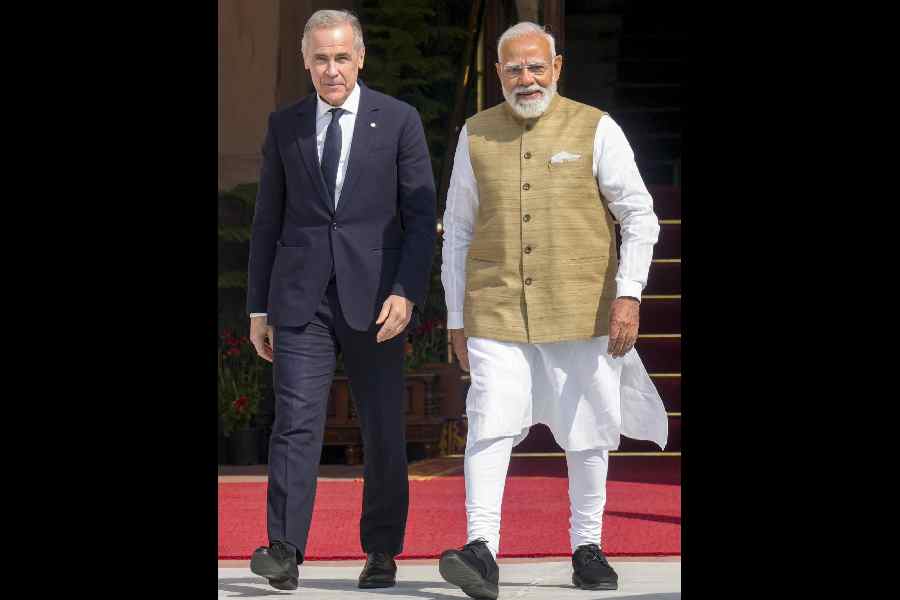 |
| Edward Said: Custodian and vigilante |
LEGACIES OF ORIENTALISM
At readings by Indian writers in English, two related questions, or some version of them, will invariably be asked by a member of the audience, whatever the setting ? bookshop, university seminar or literary festival. The first question is, ?Which audience do you write for??; and the second, ?Are you exoticizing India for a Western audience?? I don?t know why people don?t tire of asking these questions; but I notice that all kinds are interested in asking them ? among others, the type whose reading consists almost entirely of recent fiction, an odd mixture of The Da Vinci Code, Pico Iyer, and Vikram Seth; people who read almost nothing but magazines, and whose views on, and affective response to, writers derive not so much from books, but almost entirely from what?s circulating about those books and their authors in print; and people in academic disciplines like cultural studies or literature, to whom, especially since the rise of the former, and the latter?s surrender to the former?s protocols, such questions are bread and butter.
The questions seem to arise from a misplaced idea of a moral custodianship of literature, at a time when no one ? neither the reader, nor the person who attends readings because of the free drinks, nor the academic ? seems to have a clear or reliable notion of what ?literature? is. What is it we?re trying to protect when we ask these questions? What is literature, or, for that matter, ?Indian writing in English?, entities largely created by writers, and apparently so susceptible to being sold and peddled like wares by them?
?Literature?, as a category, has, for some time now, lost its integrity and recognizability; and there is no persuasive and intelligent debate, let alone a consensus, on the nature of Indian writing in English. Ever since the politics of representation, rather than the definition of literary practice, became a principal preoccupation of literary departments, we?ve been left with one or two tired moral gestures in lieu of a robust and ongoing discussion of, and enquiry into, what it is we?re making those gestures on behalf of. And the politics of representation ? for questions about a writer?s audience, and his or her use of the ?exotic?, are primarily political questions ? has passed into the common parlance, in the way that more complex ideas from, say, Rousseau or Freud or Marx have in the past been translated into the public sphere, where they?re free to be used by people who don?t know what their sources are, and sometimes as a knee-jerk response to the problematic.
As to the questions above, I think it?s safe to say that the people who ask them ? whether they?re nameless literary buffs, or pillars of society, or teachers or students of literature ? think the questions arose within themselves spontaneously as an immediate response to a situation or context; there?s an assumption that these questions have no history or source. But surely these questions tell us more about the intellectual formations and compulsions of our time, and about this moment in Indian literary history, than their supposed answers would illuminate us about the impulses that go into the act of writing? The questioner, anyway, is hardly as interested in those impulses ? that is, in the answers to the questions ? as in stating certain moral parameters for writing and thinking. Where did those particular parameters come from? The questions aren?t timeless, but the questioner invests them with the authority of timelessness. And yet, to my knowledge, no one asked Bibhutibhushan Banerjee or Manik Bandyopadhyay whom they wrote for, or if they were ?exocitizing? rural Bengal for a metropolitan readership.
English, then, is part of the problem; the act of writing in English was, in India, potentially an act of bad faith, and a residue of the old suspicion regarding the motives of those who write in English remains and is still at work among us. But the focus in those earlier attacks on Indian writers in English, such as the famous one led by Buddhadev Bose, was artistic practice, even if that practice entered the discussion negatively, with a metaphysical fatalism; it was apparently impossible for writers to fully and deeply address their subject except in a language that was their ?own?. By bringing the audience into the picture, the emphasis and the debate shift from writerly practice to cultural, social, and economic transactions ? from the mystery and riddle of the creative act to the dissemination of texts and meanings, by publishers and newspapers, in the academy and in bookshops, from meaning to the production of meaning.
This is where Edward Said comes in; Said who, in a devastatingly effective substitution, replaced ?meaning?, in the post-structuralist enquiry (still fresh at the time) into its production, with ?the Orient?. The notion is brought in, almost casually, as an interjection, when Said says that his concern in his study, Orientalism, is to examine the ?enormously systematic discipline by which European culture was able to manage ? and even produce ? the Orient?. That ?and even? shouldn?t distract us from the fundamental importance Said and others after him have attached to this notion. In the last few decades, there?s been a palpable but often unspoken feeling that the production of the Orient has moved beyond Europe, and Europeans, into the realm of the diaspora, and of Indian writing in English. And the spread of globalization and the free market coinciding roughly with the advent of the post-Rushdie Indian novel in English returns us to the epigraph from Disraeli in Said?s book: ?The East is a career.? For the production of the Orient involves, implicitly, its consumption; the circle is incomplete without the ?audience?.
But the concern with this form of ?production? has given us not so much a critical eye or sensibility, but a sense of vigilance, and, at a cruder level, a kind of vigilantism; this is where the astringency and aggression of those questions come from. More than a year after Said?s death, we can reflect on the legacies of Orientalism ? the book, not the phenomenon described within it ? and say that this particular brand of vigilantism too is one of them, just as much that is both and good and indifferent in post-colonial studies today is. It?s the Saidian inheritance that gives those questions their urgency; but since they seem to have no provenance, and little critical content, I?d say they are vulgarized legacies of Orientalism, among the many by-products of that great polemic that are both ubiquitous and don?t bear close scrutiny. This doesn?t prevent those questions from being reiterated, as a constant, irrefutable challenge, and their standpoint from remaining unexamined; vulgarizations permeate language, and become a habit of thinking. But we might begin to look beyond, or behind, those questions.










